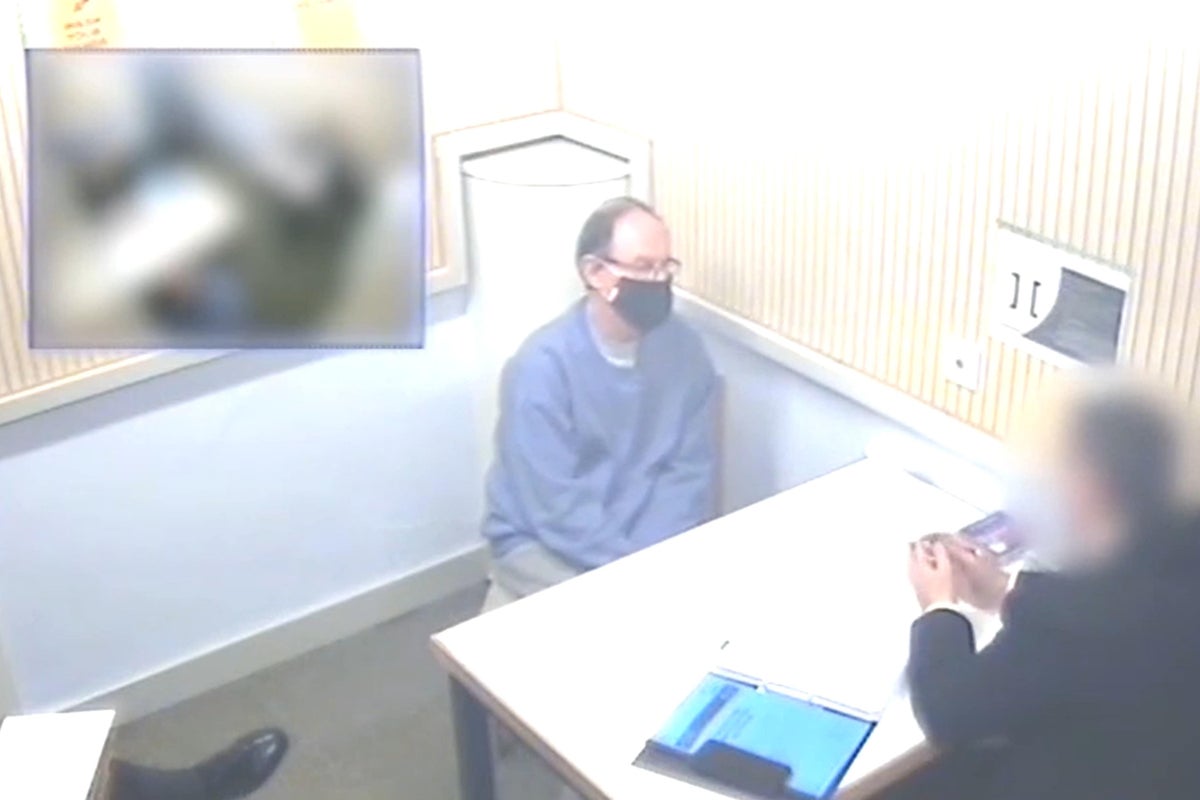
The David Fuller inquiry has identified “serious failings” at the hospitals where he worked and made 17 recommendations with the aim of preventing similar atrocities.
The maintenance worker sexually abused the bodies of at least 101 women and girls aged between nine and 100 while employed at the now-closed Kent and Sussex Hospital and the Tunbridge Wells Hospital, in Pembury, between 2005 and 2020.
Unveiling the inquiry’s findings on Tuesday, chairman Sir Jonathan Michael said that had the 69-year-old’s colleagues, managers and senior leaders been “more curious”, his opportunity to offend could have been reduced.
Asked by reporters if the lack of curiosity at the hospital trust was from particular senior managers or part of a wider culture problem, Sir Jonathan said: “I think it’s a wider issue.
“It’s not an uncommon cultural issue if you look back at reports of other inquiries, Savile would be an obvious example where there was concern about the lack of curiosity about why people were doing things which seemed a little bit odd.
“Had the measures that I am recommending been in place when Fuller was working at the trust, I firmly believe his offending could have been prevented,” Sir Jonathan said.
As part of its investigation, the inquiry interviewed 200 witnesses and reviewed more than 3,700 pieces of documentary material.
Three potential witnesses declined to come forward: Karen Calder, a former mortuary technician at the trust as well as Ronnie Horton and Neil Bridges, who both worked for hospital contractor Interserve.
Here the PA news agency takes a closer look at the key failings which allowed Fuller to offend for 15 years without being suspected or caught:
– Fuller was given access to a key to the mortuary at Kent and Sussex Hospital in 2002. His access to the mortuary was not monitored as there was no monitoring system in place. After 2007, there was no system of monitoring access to the mortuary for those who were signing keys out of the switchboard.
– From 2011, Fuller was given full access to the mortuary at the new Tunbridge Wells Hospital site via his swipe card. The card enabled him to access the mortuary 444 times in just one year, between December 2019 and December 2020. Data on those accessing the mortuary via their swipe cards was collected but never reviewed.
If it (CCTV) was in place, then it wouldn’t have been possible, no matter what mental state I was in, to actually carry out anything illegal— David Fuller in evidence to the inquiry
– The bodies of deceased people were left out of the mortuary fridges overnight where Fuller had been allowed to undertake maintenance tasks in the post-mortem room at Kent and Sussex Hospital and at Tunbridge Wells Hospital.
– Trust senior executives failed to listen to staff regarding the necessity of installing CCTV in the mortuary. CCTV was not installed in the mortuary until 2020. Senior executives were aware of there being problems with the mortuary service since 2008. In his evidence to the inquiry, David Fuller stated: “If it (CCTV) was in place, then it wouldn’t have been possible, no matter what mental state I was in, to actually carry out anything illegal.”
– Three organisations – the Human Tissue Authority, Care Quality Commission and UK Accreditation Service – inspected the mortuary but none identified or addressed the systemic weaknesses that created the environment in which David Fuller offended.
– Fuller was able to offend during mortuary working hours on 12 occasions between June 2015 and June 2017. These offences happened when mortuary staff should have been on duty.
– Fuller was able to use the mortuary admissions logbook when selecting his victims and to assist him in the cataloguing of his crimes. Mortuary staff knew he looked at the admissions logbook, accepting this was for monitoring fridge temperatures.
– When he applied for NHS jobs and promotions, Fuller falsely claimed he had no criminal convictions and Interserve “did not notify the trust of his convictions when it became aware of them in 2011 and again in 2015”, which was in breach of contract and agreements, the report said.
It added: “There was no process of review in 2011 and 2015 that would have shown David Fuller’s previous failure to disclose his convictions when he was appointed to his NHS role in 1989 and promoted in 2002. Although he might not have been barred from continuing his employment, we consider that knowledge of his convictions could have led to questions about his honesty and closer scrutiny of his actions when taken together with his other behaviour.”
Among its recommendations for change, the inquiry said the trust must make sure it is following its own policy on criminal record checks and reviews for staff and that contractors are subject to the same requirements.
– The inquiry also highlighted wider failings at the trust, including bodies sometimes being “doubled up” in fridges to save space, especially in the winter.







